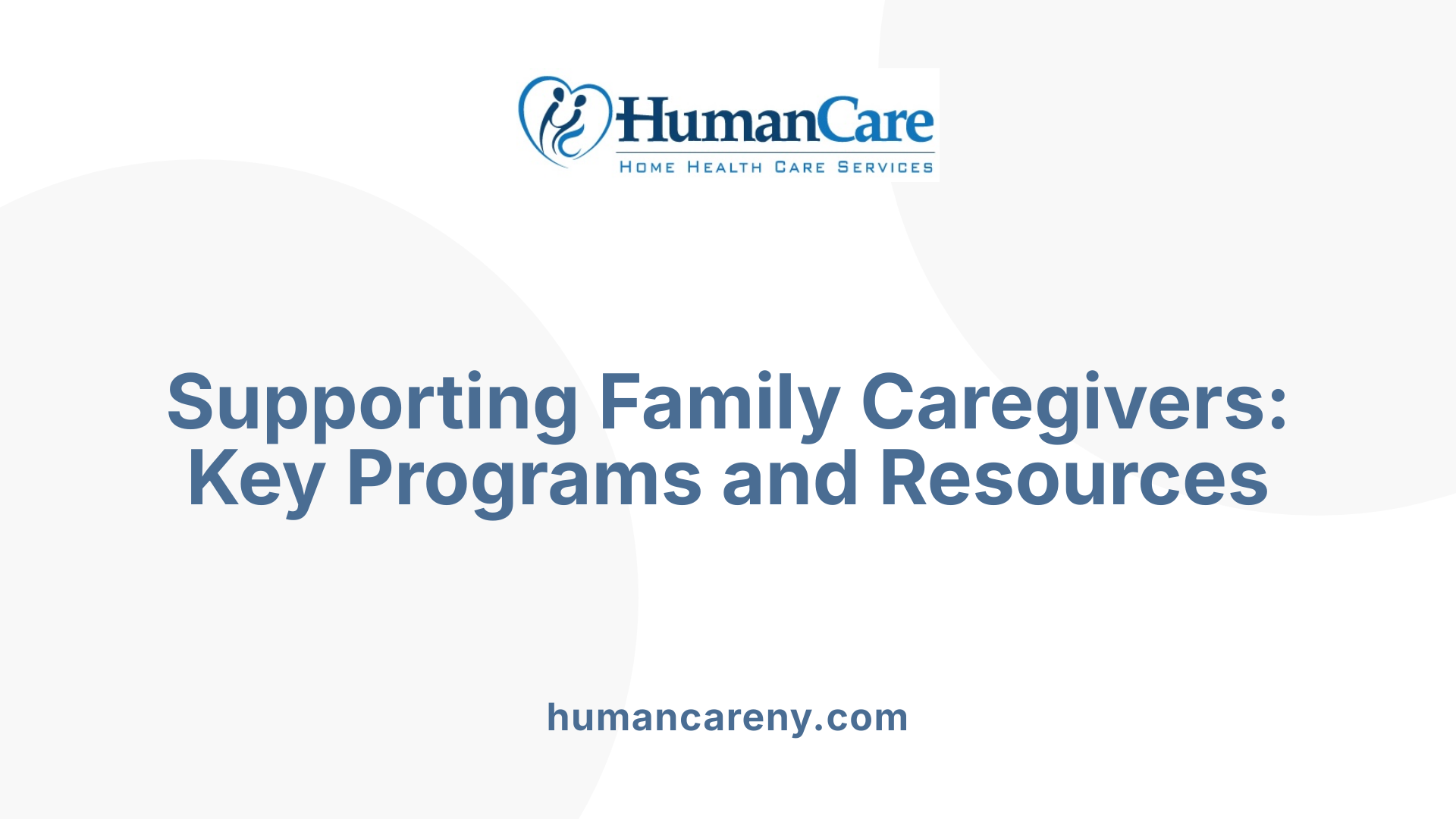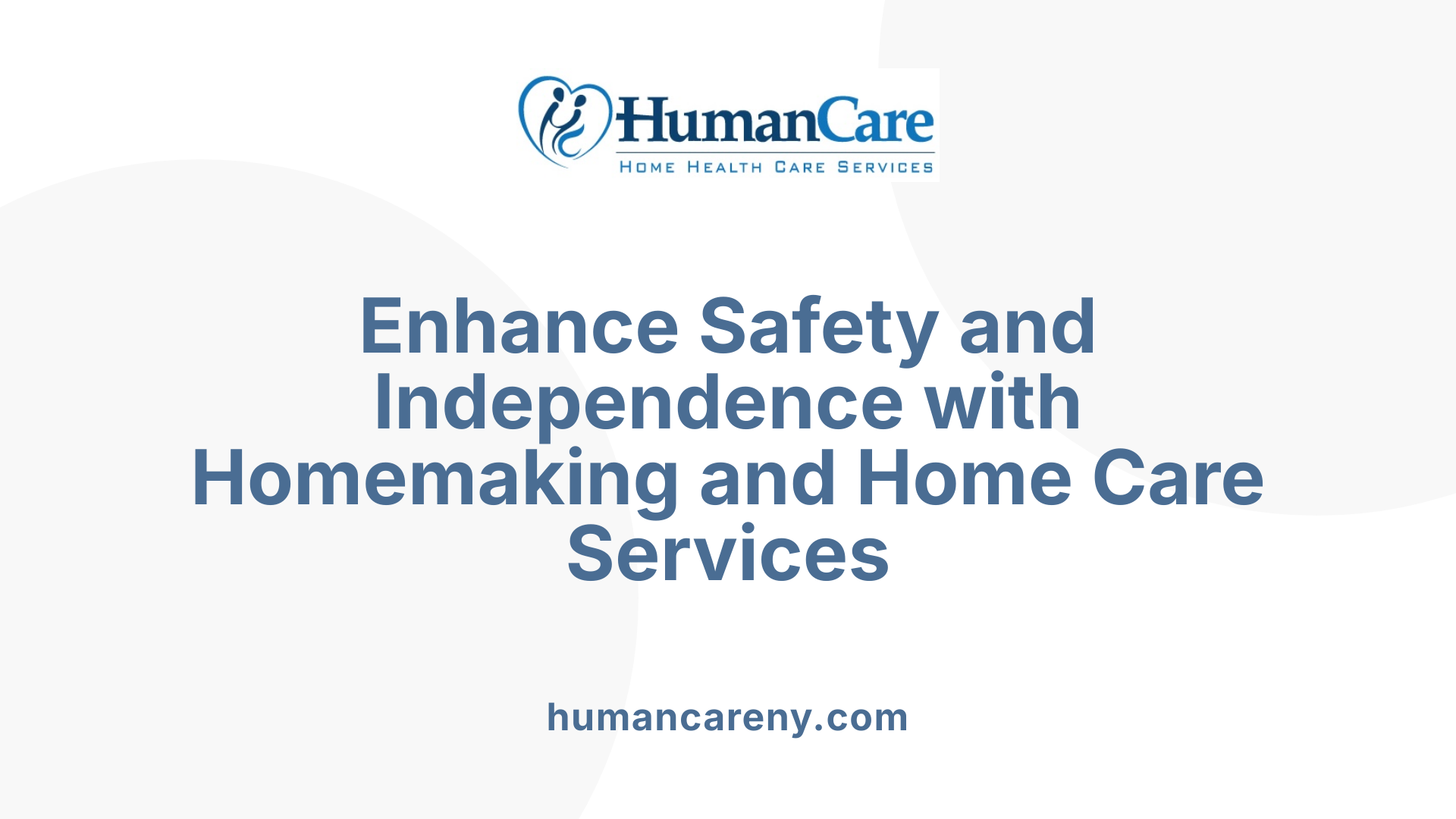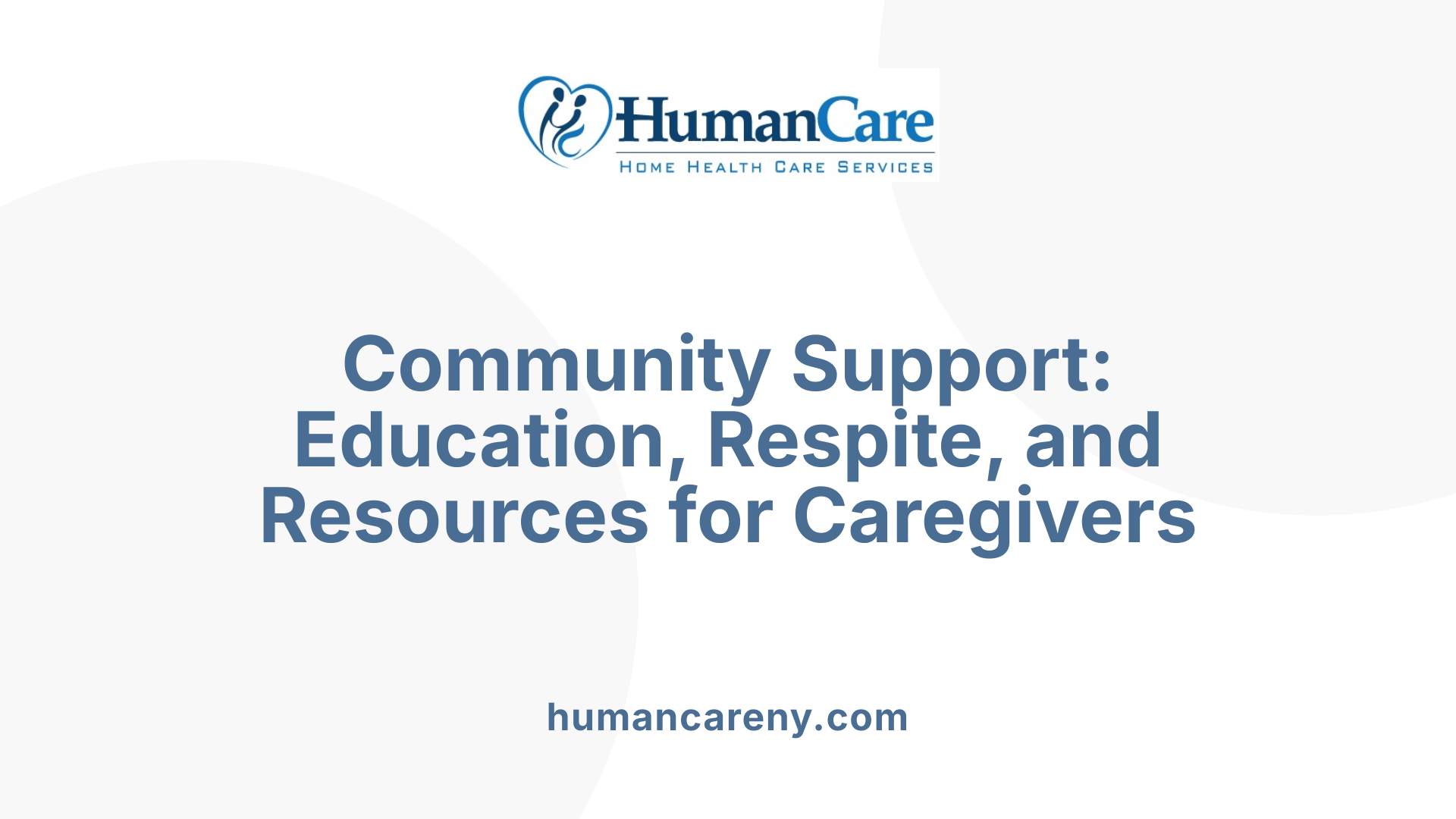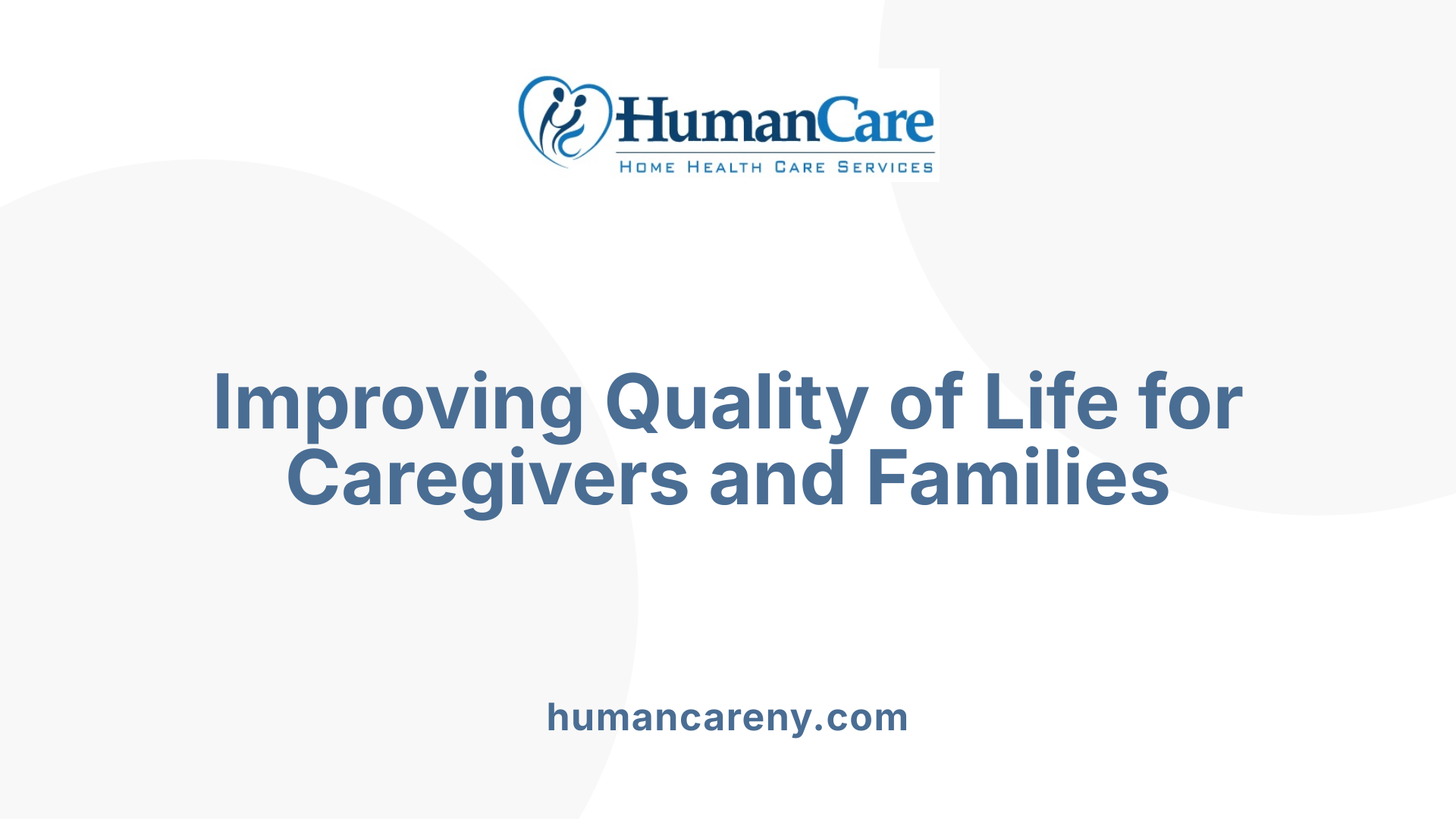Understanding the vital role of homemaking services and community programs in aiding family caregivers
Family caregivers are the backbone of elder and disability support across the country, providing unpaid assistance valued at over $600 billion annually. However, the physical, emotional, and financial burdens of caregiving can be overwhelming. Fortunately, a wide array of programs and services, including homemaking and community support initiatives, are designed to support these caregivers, enabling aging in place and ensuring family stability. This article explores how these resources function, their scope, and the profound impact they have on caregivers and their loved ones.
Overview of Programs and Resources Supporting Family Caregivers

What are common programs and resources available to support family caregivers?
Family caregivers play an essential role in caring for older adults, individuals with disabilities, and those living with chronic health conditions. To support them, various programs and resources are available across community and government levels.
National Family Caregiver Support Program (NFCSP)
This federal initiative, part of the Older Americans Act, offers comprehensive support including information, counseling, caregiver training, respite care, and support groups. In 2014, over 700,000 caregivers benefited from these services, which help delay nursing home placement and reduce caregiver stress.
Lifespan Respite Grant
The Lifespan Respite Grant provides funding to states and jurisdictions to create coordinated respite services. It offers vouchers for low- or no-cost respite care, giving family caregivers essential breaks and helping to manage burnout.
Area Agencies on Aging (AAAs)
Local AAAs serve as hubs for caregiver resources. They coordinate services like meal delivery, transportation, caregiver education classes, emergency assistance, and individual counseling. Through programs like the National Family Caregiver Support Program, AAAs facilitate access to tailored services suited to specific caregiver needs.
Caregiver Networks and Associations
Support networks such as the Family Caregiver Alliance and Caregiver Action Network provide vital emotional and informational support. These organizations host support groups, offer educational materials, and advocate for caregiver needs.
Veterans Caregiver Programs
Veterans’ caregivers can access specialized assistance through programs like the VA’s PCAFC (Program of Comprehensive Assistance for Family Caregivers), which offers training, stipends, counseling, and respite services. These programs aim to ease the burden of caring for wounded or chronically ill veterans.
| Program/Resource | Focus Area | Main Services Offered | Typical Beneficiaries |
|---|---|---|---|
| NFCSP | Older adults & Alzheimer’s | Counseling, respite, training, and support groups | Family caregivers of seniors and those with disabilities |
| Lifespan Respite Grant | Caregiver respite | Vouchers, respite service coordination | All family caregivers needing breaks |
| AAAs | Community support | Meals, transportation, caregiver training, emergency aid | Local caregivers and families |
| Caregiver Networks | Emotional support | Support groups, educational resources | All caregivers seeking peer support |
| VA Caregiver Programs | Veterans caregiving | Training, stipends, counseling, respite | Family members of injured or ill veterans |
These programs collectively aim to reduce caregiver burden, improve quality of life, and enhance the safety and well-being of care recipients.
Supporting caregivers through accessible resources and community-based services is vital for sustaining their crucial role and ensuring that caring for loved ones remains feasible and effective.
How Homemaking and Home Care Services Support Family Caregivers in Aging in Place

How do homemaking and home care services support family caregivers and help with aging in place?
Homemaking and home care services play a crucial role in assisting family caregivers and enabling older adults to remain in their homes. These services include help with household chores such as cleaning, laundry, shopping, and meal preparation, as well as personal care activities like bathing and dressing. By taking on these daily responsibilities, homemakers relieve some of the physical and emotional strains faced by family caregivers.
In addition to daily task support, these services promote independence and safety for seniors. They often include transportation, medication reminders, and light home repairs, which can help prevent accidents and health deterioration. This comprehensive support creates a safer environment that encourages older adults to age in place without the immediate need for institutional care.
Care plans are customized to meet individual needs. Caregivers, clients, and professionals collaborate to develop plans tailored to the person’s health, physical condition, and preferences. Regular assessments ensure the care remains responsive to any changing conditions.
Medical support coordination is also available when needed. Some homemaker services are complemented by professional health aides who provide skilled nursing, therapy, or medical oversight, ensuring that medical needs are adequately managed.
Overall, these supportive services aim to maintain and improve the quality of life of older adults, helping them sustain their independence while reducing caregiver stress. They create a supportive and safe home environment, making aging in place a feasible, comfortable choice for many seniors.
Strategies Employed by Homemaking Services to Support Aging in Place
What strategies do homemaking services use to support aging in place?
Homemaking services employ a variety of strategies to help older adults live comfortably and safely in their own homes for as long as possible. A primary approach is developing personalized care plans tailored specifically to each individual’s needs. These plans often include assistance with daily activities such as bathing, dressing, meal preparation, and household chores, which can become challenging with age or health issues.
Coordination with healthcare providers is another crucial strategy. Homemaker services regularly communicate with medical professionals to ensure proper management of medications, attendance at health appointments, and adherence to treatment plans. This collaboration helps maintain the individual’s overall health and prevents avoidable complications.
Home safety assessments are standard procedures used by homemaking providers. They examine the living environment for potential hazards such as poor lighting, clutter, or unsafe stairways. Based on these evaluations, they recommend or implement modifications like installing grab bars, handrails, and improved lighting, and removing tripping hazards. These modifications play a vital role in reducing the risk of falls and injuries.
In addition to physical safety upgrades, homemaking services facilitate access to community resources. This includes arranging transportation services for medical visits and social activities, organizing meal delivery programs to ensure proper nutrition, and connecting individuals with social engagement opportunities to combat loneliness and promote emotional well-being.
By integrating personalized care, safety improvements, health coordination, and community connections, homemaking services create a comprehensive support network. This integrated approach allows seniors to maintain their independence and quality of life while aging in their own homes.
| Strategy | Description | Outcomes |
|---|---|---|
| Personalized care planning | Tailoring care to individual needs, including help with daily tasks and routines. | Enhanced comfort and daily functioning. |
| Home safety assessments | Inspecting and identifying hazards within the home environment. | Reduced fall risk and injuries. |
| Home modifications | Installing aids like grab bars and improving lighting. | Increased safety and independence. |
| Coordination with healthcare | Communicating with health providers for medication and appointment management. | Better health management and adherence. |
| Community resource linkage | Connecting clients to transportation, meal delivery, and social activities. | Improved social engagement and nutrition. |
Homemaking services serve as a vital component in enabling aging in place by creating safer, healthier, and more supportive home environments while maintaining medical oversight and fostering community connections.
The Role of Community Organizations Like Area Agencies on Aging

Supporting caregiver education and training
Community organizations such as Area Agencies on Aging (AAAs) are essential in providing educational resources and training for family caregivers. These programs aim to improve caregiving skills, increase understanding of health conditions like Alzheimer’s, and teach safety techniques. Workshops and classes often cover topics such as managing challenging behaviors, medication management, and effective communication. By equipping caregivers with knowledge, these organizations help them provide better care and build confidence.
Providing respite and emotional support
Caring for a loved one can be physically and emotionally demanding. AAAs offer respite services like homemaker assistance, adult day care, and in-home supervision, giving caregivers temporary relief from their duties. Support groups and counseling services are also available, addressing feelings of stress, depression, and burnout. Emotional support helps caregivers maintain mental health and resilience, vital for sustaining long-term caregiving.
Helping navigate community services
Locating and accessing community resources can be overwhelming for family caregivers. AAAs serve as a guide, helping families identify available support options, including transportation, home modifications, legal services, and financial aid. They provide personalized assessments to determine specific needs and recommend appropriate services, simplifying the process of obtaining care and support.
Facilitating caregiving plans
Creating a comprehensive caregiving plan is crucial for coordinating care effectively. AAAs assist families in developing customized plans that outline responsibilities, schedules, and service providers. This proactive approach ensures that caregivers can manage their responsibilities systematically and that care recipients receive consistent and appropriate support.
| Service Area | Examples of Support | How It Benefits Caregivers | Additional Details |
|---|---|---|---|
| Education & Training | Workshops, skills classes | Increases caregiving competence | Focuses on health conditions, safety techniques |
| Respite Care | Homemaker services, adult day care | Reduces caregiver fatigue | Provides temporary relief |
| Emotional Support | Support groups, counseling | Improves mental health | Helps prevent burnout |
| Community Navigation | Resource referral, care planning | Eases access to services | Personalized assessments |
Overall, organizations like AAAs play a pivotal role by offering resources that bolster caregiver ability and resilience. They ensure that family members feel supported, informed, and capable, which is essential for providing high-quality care while maintaining their own well-being.
Impact of Homemaking Services on Family and Caregiver Well-Being

How do homemaking services improve the quality of life for families and caregivers?
Homemaking services play a significant role in boosting the overall quality of life for both families and caregivers by providing professional support that relieves many everyday pressures. These services help with essential household chores such as meal preparation, light housekeeping, laundry, and transportation, which can be physically demanding for family caregivers.
They also support the health and safety of older adults and individuals with disabilities by assisting with activities of daily living, which promotes their independence and dignity. The presence of a homemaker can reduce feelings of loneliness and isolation, especially for seniors who may have limited social contacts.
For family caregivers, especially those balancing work or caring from a distance, homemaker services reduce stress and caregiving burden. They enable caregivers to have quality time for themselves or attend to other responsibilities, thereby decreasing burnout and emotional exhaustion.
In addition, these services foster a more balanced family environment by supporting older adults in maintaining their routines and habits, leading to a more peaceful home life. Overall, homemaking services create a safer, more supportive, and less stressful environment, which benefits the physical, emotional, and financial well-being of everyone involved.
Empowering Caregivers for Sustainable Support and Independence
In summary, homemaking and home care services, along with supportive community programs, play a critical role in empowering family caregivers. They help alleviate the physical, emotional, and financial burdens associated with caregiving, support aging in place, and improve overall family well-being. Access to these services is facilitated through government programs, community organizations like Area Agencies on Aging, and specialized support networks. By fostering a coordinated approach to caregiving, these resources ensure that families can maintain stability and quality of life while caring for loved ones in the comfort of their own homes.
References
- Family Caregiver Support Program Department of Aging and Adult ...
- Family Caregiver Services - California Department of Aging
- The Benefits of Utilizing Homemaker Services for In-Home Care
- How do Medicaid Home Care Programs Support Family Caregivers?
- Caregiver Supports - USAging
- Supporting Family Caregivers in Providing Care - NCBI
- What Are Homemaker Services? - ElderLife Financial



